Perspectives on
Education in the Digital Age
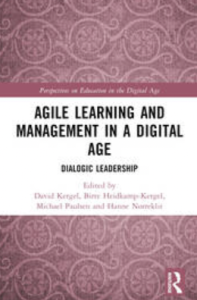
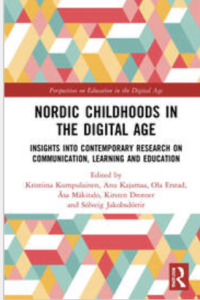
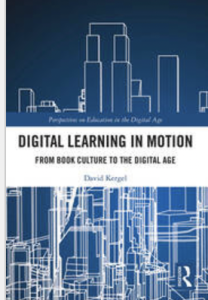
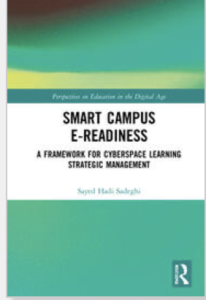
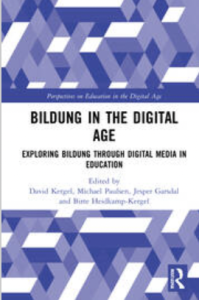
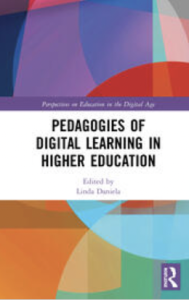
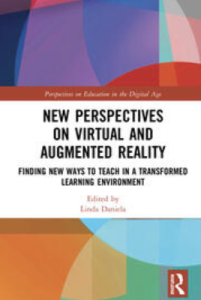
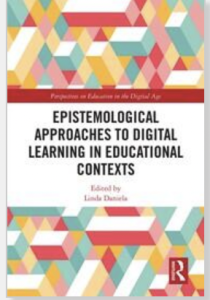
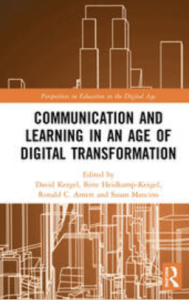
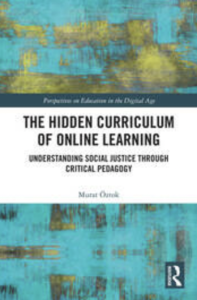
The process of digitalization is leading to a fundamental social change affecting all spheres of social life. With this, one has to be aware that digitalization is inevitable but, at the same, a social product. This means that digitalization and media change generally does not occur like a force of nature. It is a cultural manifestation and has to be discussed as such. The social dimension of digitization has ambivalent effects. Thus, digitalization provides the communicative basis for decentralism and pluralism. Simultaneously, the question of self-determination in times of data tracking is a central point of criticism. All these societal effects of digitalization also affect the educational field. There is a need for re-structuring key concepts such as learning, teaching, and education that considers socio-economic and cultural changes in the pedagogical field.
In the context of an increasingly differentiated society, aspects like diversity and emancipation via and within education in the digital age are central aspects for a proper understanding of digital-based teaching and learning in theory and practice.
To develop such digital-based teaching and learning in theory and practice, contemporary media education and e-learning research face the challenge of opening up to a transdisciplinary dialogue with other scientific disciplines. Such a dialogue makes it possible to address and discuss education’s complexity in the digital age drawing knowledge and research results from different fields. The Series provides a forum for such a dialogue, for discussions and a critical, integrative analysis of social transformations in the digital age, drawn from different fields such as the humanities, social sciences, and economics. The Series aims to analyze the implications of cultural change on education in the digital age by bringing together transdisciplinary dialogue and different theoretical approaches.
Editors
- David Kergel
- Birte Heidkamp-Kergel
Book Description
This book discusses the concept of the smart campus and e-learning practice in tertiary education, showing the relevance of the smart campus to the current learning environment. It provides a pedagogical framework for good practice in smart university campuses.
The book outlines the interdisciplinary concept of the smart campus and draws on technology, education, and learning sciences to show how the smart campus can best work. It examines e-practice assessment in three different contexts, namely the United States, Australia, and Iran, from the perspective of administrators, faculty members, and students. Using this international comparative analysis, the book determines the existing advantages and disadvantages of existing e-learning systems. It offers a framework for researchers and developers to accelerate and assess the readiness of current campuses to optimize teaching, learning, and research at the university.
This highly topical book will be essential reading for researchers, scholars, and post-graduate students in the fields of educational technology, digital education, higher education, and e-learning. It will also be useful for higher education instructors and university administrators to understand how smart campus knowledge can be integrated with other learning and teaching experiences.
Biography
Sayed Hadi Sadeghi is Assistant Professor and Head of University e-Learning Department at the Supreme National Defense University, Iran and Research Assistant at the University of Sydney, Australia.
Book Description
Foreign Language Learning in the Digital Age addresses the growing significance of diversifying media in contemporary society and expands on current discourses that have formulated media and a multitude of literacies as integral objectives in 21st-century educat
Christiane Lütge holds the Chair for Teaching English as a Foreign Language at the Ludwig-Maximilians-Universität (LMU) Munich, Germany.
Book Description
Bildung in the Digital Age explores the challenges and potentials of digitalization for educational theory and practice and identifies how the pedagogical concept of Bildung can be used to meet these demands.
Discussing the educational landscape of a pandemic and post-pandemic world, the book describes how digitalization changes the media foundation of learning and teaching. It further raises questions of how we could think about Bildung in a digitalized world, how Bildung-based online teaching and learning can be implemented, and whether it is possible to understand Bildung and its emphasis on individual freedom and self-determination as a counter-concept to digital surveillance capitalism.
The book will appeal to academics, researchers, and postgraduate students in the fields of digital learning, educational theory, and media education.
Biography
David Kergel is Professor at the IU University of Applied Sciences, Germany, and co-editor of the book series “Perspectives on Education in the Digital Age” (Routledge).
Michael Paulsen is Associate Professor at the University of Southern Denmark University, Denmark.
Jesper Garsdal is Senior Associate Professor at VIA University College, Denmark.
Birte Heidkamp-Kergel is Coordinator of the E-Learning Centre at the Rhine-Waal University of Applied Sciences, Germany, and co-editor of the book series “Perspectives on Education in the Digital Age” (Routledge).
Book Description
Pedagogies of Digital Learning in Higher Education explores topical issues in education and pedagogy related to the learning process in a technology and media-enriched environment. With a range of international contributions, it opens discussions on the development of the educational science sector and strategies for smart pedagogy to promote a synergy between technology and pedagogy to support students in the learning process.
This book analyzes the knowledge-building dimension; the potential of technological solutions to provide feedback. It provides practical offerings that will be of use to those whose interests are related to the collection of research results, digital referencing, the use of online learning tools, or the use of virtual reality solutions in historical constructions. In addition, ideas to promote creativity and the use of digital technology in music education, biology, career education, and social work education have also been developed. This book will be of great interest to academics, researchers, and post-graduate students in the fields of higher education, vocational education, and digital learning.
Biography
Linda Daniela is Professor, Chair of the Council for PhD Defence in Educational sciences, Dean of Faculty of Education, Psychology and Art at the University of Latvia in Riga, Latvia.
Book Description
Digital Learning in Motion provides a theoretical analysis of learning and related learning media in society. The book explores how changing media affects learning environments, which changes the learning itself, showing that learning is always in motion.
This book expounds upon the concept of learning, reconstructing how learning unfolds and analyzing the discourse around pedagogy and Bildung in the age of new digital media. It further discusses in detail the threefold relationship between learning and motion, considering how learning is based on motion, generated by new experiences and changes with the environment and through its own mediatization. The book presents a normative model that outlines how learning can be structured on the basis of society’s values and self-understanding discourses in the digital age.
This book will be of great interest for academics, postgraduate students, and researchers in the fields of digital learning and inclusion, education research, educational theory, communication and cultural studies.
Biography
David Kergel is a Professor at the IUBH University of Applied Sciences and Co-editor of the book series ‘Perspectives on Education in the Digital Age’ (Routledge). His research interests include qualitative educational research, media education, and diversity in the digital age.